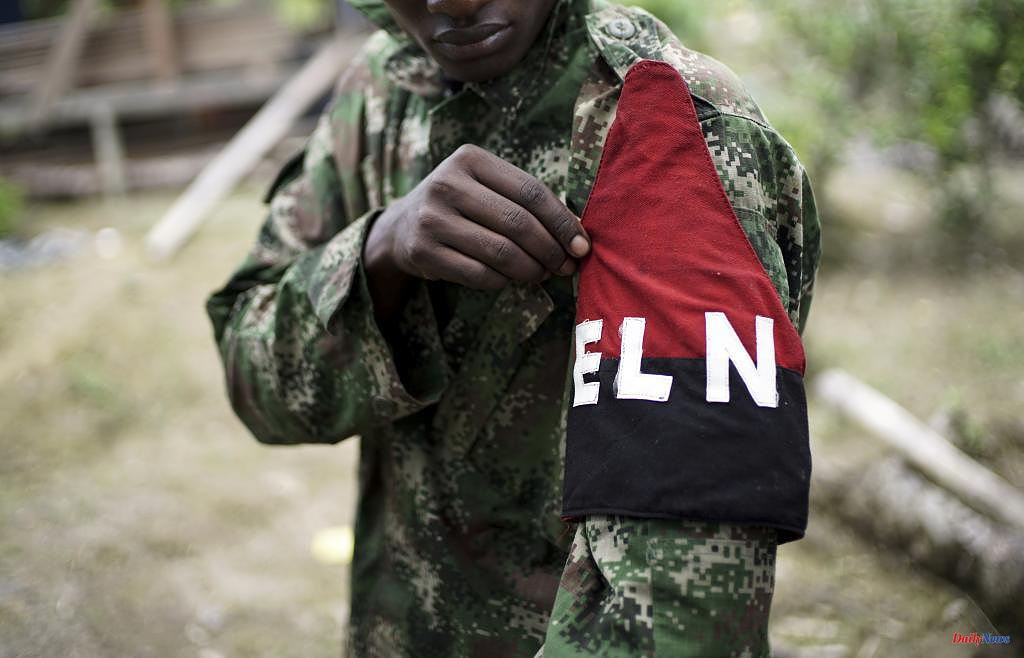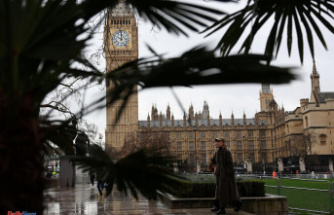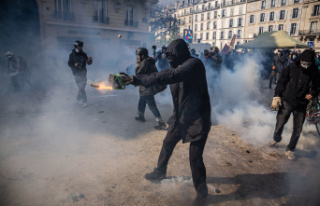It is an image that has been repeated since 1991. A delegation from the ELN and another from the Colombian government intend to seal a political agreement that puts an end to the armed confrontation. All previous attempts have failed and citizen rejection of this terrorist group always remains high - 88% in the latest Gallup poll. But 55% continue to consider that negotiation is the best option to put an end to a guerrilla that has been sowing misery and tragedy in Colombia for more than half a century.
This Tuesday, the teams of President Gustavo Petro and Antonio García, top leader of the ELN, will sit down again, face to face, in Havana. They will begin in Cuba the third cycle of a long process that started in the Administration of Juan Manuel Santos, without achieving progress, and then broke up by Iván Duque.
With Petro in the Nariño Palace, it has not yielded the expected results either, since the head of state promised in the last stretch of the electoral campaign that he would sign peace with the ELN three months after assuming power if he won. At the moment he has only reaped setbacks and run-ins with García and his henchmen.
Last December, the president informed the country, via Twitter, that they had agreed to a ceasefire and García denied him not only with words. Also with facts.
The subversive leader, a refugee in Chavista Venezuela, stated that laying down weapons was not a priority or the main port of arrival for the peace process. Meanwhile, on Colombian soil, his men massacred nine soldiers in cold blood while they slept.
The brutal attack, which occurred in March in the Catatumbo region, in eastern Colombia, deepened skepticism about the guerrillas' true desire for peace, as indicated by the fact that 42% of those consulted by Gallup did not approve of the negotiated path.
With Petro in the Nariño palace, the delegations have held meetings in Caracas and in the Mexican capital and the only fruit has been the so-called Mexico Agreement: both parties have identified the need for a "great National Agreement" to "push the changes that Colombian society requires".
The Elenos aspire to make it the starting point of the new cycle of conversations due to their everlasting desire to speak with different social groups, forge alliances and change the country.
The guerrillas do not believe the high percentages of social rejection that opinion polls show every year. He thinks that they are misrepresented by the economic powers, just as the old FARC maintained. Until they went to the polls as a party and barely obtained 52,000 votes out of the more than 20 million who supported the rest of the political formations.
But the Government, more than tours through Colombia, what it needs is to reduce the violence and show results soon. That is why it has its sights set on achieving a bilateral ceasefire that the ELN has not yet wanted to endorse.
Nor does the dust that Antonio García raises with his controversial opinions help him, now that he has joined social networks.
"We have made it clear that the ELN does not recruit. People join voluntarily. We do not associate minors to our combatant ranks," the commander recently said, despite a barrage of accusations from victims and evidence from the Family Welfare Institute and others. independent bodies.
His words, which deserved widespread repudiation, had the surprising support of the government's chief negotiator, Otty Patiño, a former M-19 guerrilla.
"Forcibly, I don't know. I really don't know," he told a group of journalists, a phrase that generated countless criticisms.
"To deny that the ELN has recruited children and adolescents is to deny an evident and worrying reality for those who live in the territories," said Carlos Camargo, Ombudsman. "This guerrilla has committed multiple and systematic acts of forced recruitment of minors in the country."
One of the latest complaints was made by the mayor of Yarumal, department of Antioquia, in April. The ELN tried to recruit 15 minors with promises of money. That time they didn't succeed, but they usually take them away and when the guerrillas repent, they don't let them return to their homes.
Also the kidnapping of an 86-year-old rancher last week in Curumaní, department of Cesar, and that of four other septuagenarians in previous months, for whose release they demand large sums of money from their families, making it clear that age is not an obstacle. to its barbarity, is another factor that weakens the credibility of the dialogues with the ELN.
"We ask the ELN for commitment and seriousness because over the last few years what they have done is increase their terrorist and criminal actions. It is a mockery of the country," Luis Naranjo, a young politician from Arauca, a border department, told EL MUNDO with Venezuela, which the ELN threatens to kill. "Our region is the stronghold of that guerrilla and what we want is to be left in social, economic and political tranquility. And that those who want to participate in the local elections (October) can do so without the ELN bandits attacking the candidates who declare enemies".
According to the criteria of The Trust Project












